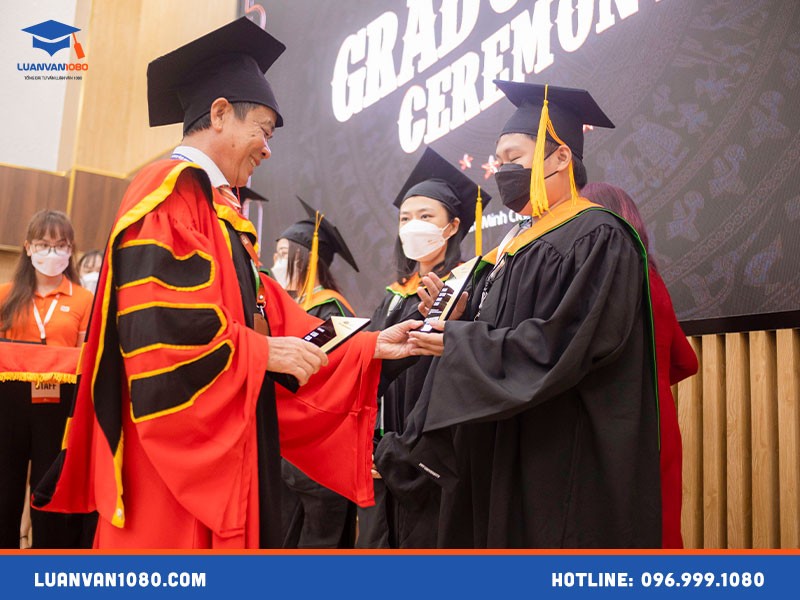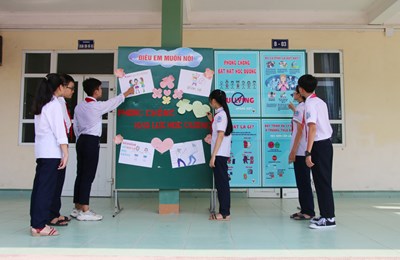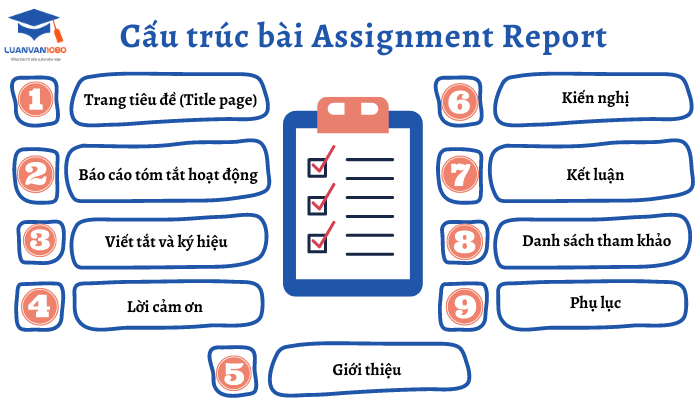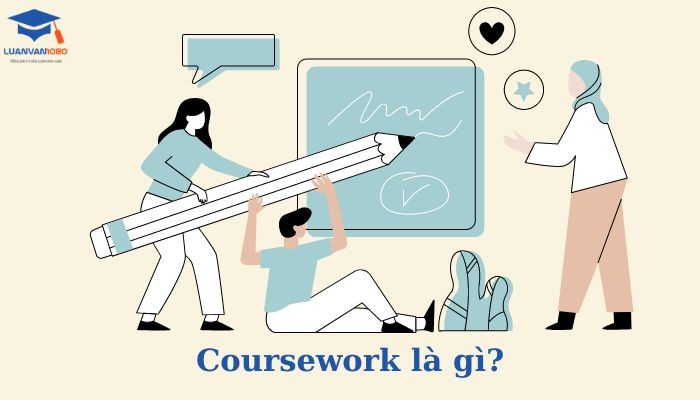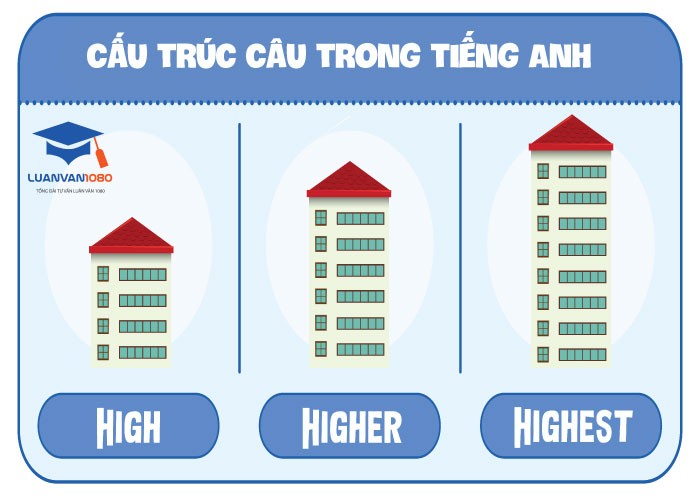Giống như bất cứ bài luận văn nào khác mà bạn viết ở trường học, bài essay xin học bổng cũng cần có một cấu trúc, nội dung rõ ràng cho phép người đọc hiểu những gì bạn viết một cách dễ dàng. Nếu bạn chưa biết bắt đầu nó như thế nào thì hãy đọc các mẹo viết luận và những bài essay mẫu xin học bổng dưới đây để tham khảo nhé.
1. Top 5 bài essay mẫu xin học bổng hay nhất
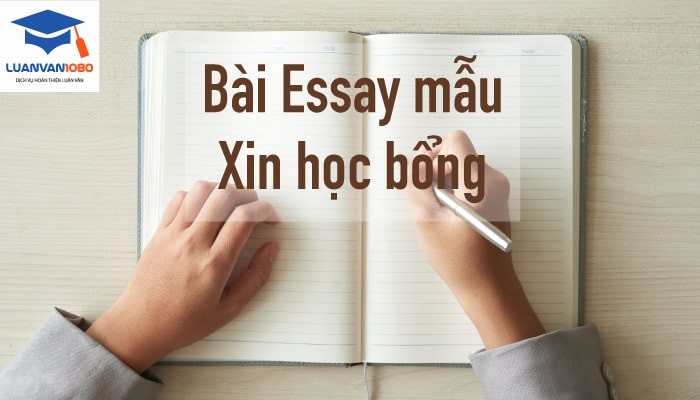
Những bài essay mẫu xin học bổng hay xuất sắc
1.1. Bài essay mẫu xin học bổng OppU Achievers của Stella Gitelman Willoughby
Stella Gitelman Willoughby, sinh viên năm nhất của trường Berklee College of Music (Cao đẳng Âm nhạc Berklee), đã nhận được Học bổng OppU Achievers vào tháng 5 năm 2018.
Dưới đây là bài essay mẫu xin học bổng của Stella:
“I am an unlikely achiever. I stumble daily—literally from Ehlers-Danlos Syndrome and seizures, metaphorically from autism, dyslexia, and a mood disorder. Every moment is unpredictable; I balance precariously. I fight to regulate my senses, emotions, and body in space. It is only once I fall that I can pick myself up, rebalance from my misstep, and move forward.
Through my music composition I steady myself. Rooted on the piano bench, rapt in sound, improvising melodies and harmonies, quickly notating ideas, I am in command. My dysregulation, stress, anxiety, instability—my obstacles—become music. I work my tension into minor triads or uncomfortable intervals, possibly a tritone. Gaining calm and control, I conclude the Largo movement and the music develops into a brighter Allegro, or Vivace. I might boldly attempt triplet passages, with accelerando.
My musical expressions, the embodiment of my challenges, have won awards nationally and internationally. I am an ASCAP Morton Gould Young Composer Award winner. Concert halls in Boston, Manhattan, St. Louis, Honolulu, Canada and Italy, have echoed with sounds of my compositions. I have received commissions from members of the Edmonton Symphony Orchestra in Canada and had my work played by members of the Hawaii Symphony Orchestra. My pieces have been performed at renowned venues such as Old South Church in Boston and Lincoln Center in New York. At each performance and with every award, I recall my unsteady journey to this blissful moment. I relish and savor the present.
My goal is to be a professional classical music composer. When I compose, I am at my best. I am smiling. I feel capable and confident. Since becoming a teen, my parents have instilled in me the need to develop self-advocacy skills, and work toward independence and financially supporting myself. Through music composition, I know I can succeed. I have already laid the foundation from which to build a career. For these reasons, I choose to pursue a degree in music composition.
Tomorrow I may wake up feeling physically or emotionally insecure. My joints or ligaments might feel particularly tight or abnormally loose, I may be overwhelmed by assignments, struggle with hearing loss I experience with seizures, or simply be over-stimulated by fluorescent lighting. Yet, I will seep into the piano bench. I will start anew, equipped with blank staff paper and a pencil. I know I can achieve; I’ve done it before. I will right, and write, my woes into wins.
Through my music I hope to bring beauty and joy to others, and inspire strength in them to confront their challenges. My dream is that one day a child will be so moved by my music that she will say, “I too want to write music!” Or, when someone needs cheering up, he will hear my music and say, “I feel much better.” Most of all, I hope that a person with similar struggles to mine will listen and say, “Wow, I now know that one day I too can achieve and excel at my passion!”
Bài luận của Stella là một ví dụ hoàn hảo cho thấy tầm quan trọng của việc tìm được học bổng phù hợp với trình độ của bạn.
Đối với học bổng OppU Achievers, họ yêu cầu các ứng viên cho họ biết điều gì khiến các ứng viên thành công. Những gì họ muốn cơ bản được chia làm ba phần:
- Cách mà ứng viên vượt qua những trở ngại.
- Cách mà ứng viên đạt được thành công.
- Cách mà ứng viên giúp đỡ người khác.
Bài luận của Stella đáp ứng tất cả các tiêu chí này.
“Stella succeeds in what she’s writing about, but she also succeeds in how she’s writing about it. The essay is grammatically flawless. It contains no typos. It’s written with elegance and illustrates—with concrete examples—exactly what we’re looking for: that Stella is an achiever who has overcome obstacles to make her dreams and the dreams of others come true.” – Nhận xét từ the OppU Achievers Scholarship.
1.2 Bài essay mẫu xin học bổng Going Merry của Gabby DeMott
ESSAY PROMPT: Discuss an accomplishment, event, or realization that sparked a period of personal growth and a new understanding of yourself or others.
“There were only a few minutes to go and our eyes were glued to the screen. On the edge of our seats, clutching whoever happened to be next to us, we watched as the referee blew his whistle and the German players took their free kick. The ball was hit with precision and skill; it flew up over the Swedish players, past their goalie, and was caught safely in the back of the opposing team’s net. We all jumped up and screamed, a mixture of German and English, of excitement and relief, of pride and anticipation.
We stood, enraptured, for the last several minutes of the game as Germany kept its 2-1 lead over Sweden. The horde of us, Germans and Americans alike, hugged and cheered and made our way out onto the balcony, where we chanted “Deutschland! Deutschland! Deutschland!” for the whole village, the whole country, the whole world to hear. Never have I felt so accepted while being an outsider, so proud of a country that isn’t even mine, so part of something I didn’t really belong to.
My German friends didn’t care that we were from different countries; they didn’t care that we would only be staying for three weeks. They accepted us into their homes and their daily lives, their traditions and their celebrations. In watching that World Cup game, it didn’t matter that we were from different places; we were all cheering for the same team. The acceptance I felt in Germany extended beyond that living room. I came to the country on a three week exchange with ten other students from my school.
We each stayed with host families and attended the Wildermuth Gymnasium, which was surprisingly accommodating to a gaggle of loud American teenagers. The teachers were friendly and welcoming, the students treated us like ordinary peers, and even the people I interacted with in public were understanding.
Before coming to Germany I feared judgment based on my level of the language (which is nowhere near as good as the German students’ English) and American politics. It was intimidating to be in a country with limited knowledge of the language and the customs, even though everyone was welcoming. People did ask myself and the other students about the US’s political climate, but no one blamed us for it. They recognized that we were outsiders, that the place we came from had flaws, and they accepted us anyway.
Since that trip, I’ve found myself trying to provide that acceptance to people in my own country. For example, I work at a canoe livery and we receive a lot of visitors with limited English. Some of my coworkers will avoid such customers because they don’t want to take the time to explain things, to exercise patience with someone who may not understand them. If people had done this to me in Germany, my time there would have been much less enjoyable; in fact, I would have been offended.
So now when someone walks up to me at the livery and asks a question in English that isn’t perfect, I smile and welcome them. I take my time to make sure they understand, that they can have a good time, and that they feel accepted. It’s a small action, but I know firsthand that it can make a big impact, at my place of work and in the world.“
1.3. The Book That Made Me a Journalist
It was six o’clock on a hot July morning. While most of my classmates were still asleep, enjoying the comfort of their summer break, I was already dressed, energized, and on my way to the local newspaper office. It was my first week as an intern in investigative journalism, and though the work was demanding and the hours long, I had never felt happier. Looking back, I realize that my journey toward journalism began not with an internship or a class assignment, but with a small paperback book given to me by a particularly insightful teacher.
During my junior year of high school, I took a composition class where we were learning how to write persuasive essays. Until then, I had been an average student decent grades, but nothing remarkable. My teacher, however, noticed something different in the way I wrote. My first paper was about a visit to an Indian reservation near my uncle’s ranch in southwest Colorado. I wrote about the harsh poverty I witnessed and the lack of voting booths during the recent election. After reading it, my teacher called me aside. She asked about my goals, something no one had ever done before. I told her that I enjoyed writing and thinking about people who lived differently from me. She smiled, reached into her bag, and handed me a book: Lies My Teacher Told Me.
I was intrigued by the title why would teachers lie? That night, I stayed up reading until dawn. The book challenged everything I thought I knew about American history. It revealed stories that had been ignored, distorted, or simplified. One chapter, about how textbooks gloss over the Vietnam War, hit me especially hard. I realized that we had barely discussed the war in my own history class. That realization was both shocking and empowering. It made me want to uncover the stories that no one else was telling.
From that moment, I knew I wanted to write not just to inform, but to question, to seek truth, and to give voice to the unheard. My next essay for the composition class was about my high school’s zero-tolerance suspension policy. I discovered that suspensions had increased by 200% in three years and that many students who were expelled for minor infractions never returned to school. The article caused a stir the administration dismissed it, but the local newspaper noticed. With the guidance of a journalist from the paper, I rewrote and expanded the piece. The story was published, prompting the school board to review and eventually revise its policy.
The experience was transformative. It was exhilarating to see that words my words could change something real. Yet it was also humbling, because I realized the responsibility that comes with using them. I learned that journalism is not about attention or fame; it’s about accountability, about giving truth the space it deserves.
That belief has guided me ever since. Through my internship, I’ve seen the impact of ethical reporting from uncovering small injustices in local communities to highlighting stories of resilience and hope. Journalism has become not just a career choice, but a calling.
This is why I am applying for your scholarship. Your organization’s mission to support young journalists who strive to uncover hidden truths perfectly aligns with my goals. I want to pursue a degree in journalism at the University of Michigan, where I can refine my writing, strengthen my research skills, and learn to uphold the highest standards of integrity in reporting.
The book my teacher gave me opened my eyes to the power of stories not the ones told by history books, but the ones waiting to be discovered. I want to keep finding and telling those stories, to shed light where others see only shadows.
Thank you for considering my application and for giving me the opportunity to share how a simple book helped me discover who I am and who I want to become: a journalist who tells the truth, even when it’s inconvenient.
1.4. Planners and Searchers
Being African, I have always recognized my continent’s need for homegrown talent for people who plan and people who search. Planners are those who design possible solutions; searchers are those who experience the need firsthand and dedicate themselves to finding what truly works. I am both. Growing up in Zimbabwe, I witnessed communities struggling with poverty, political instability, and weak governance systems. These experiences inspired in me a lifelong commitment to improving the livelihoods of developing nations through sustainable development and sound public policy.
After graduating from Africa University with an honors degree in Sociology and Psychology, I became deeply interested in how good governance could shape fair and equitable societies. My studies helped me understand human behavior and social structures, but they also revealed how fragile democratic institutions can be without proper constitutional frameworks. This realization led me to pursue practical experience in the field. I joined the Zimbabwe Election Support Network (ZESN) as a Programs Assistant in the Monitoring and Observation Department.
At ZESN, I learned that democracy is not sustained by ideals alone, but by the continuous work of ordinary citizens who care. I monitored political environments, compiled reports on electoral processes, and co-authored monthly publications on human rights violations. These reports were shared with NGOs, policymakers, and international partners to promote transparency. Through this work, I witnessed both the potential and the fragility of democracy. I realized that even small efforts a well-written report, a fair observation, an honest discussion can have a ripple effect in protecting civic rights.
My interest in development grew stronger when I participated in a fellowship program at my alma mater, Africa University. There, I taught courses on entrepreneurship, free-market economics, and social innovation. Working closely with women in rural communities, I helped establish income-generating projects, such as the Jatropha Soap-Making Initiative, which provided sustainable employment to dozens of families. These interactions taught me that policy is most effective when it begins with empathy when it is informed by the voices of those it aims to serve.
Now, I wish to take this work further. I am applying for your scholarship to pursue a Master’s degree in Public Policy in the United States. I believe that studying in an environment that values diversity, innovation, and ethical governance will give me the tools I need to contribute meaningfully to Africa’s development. My goal is to return home equipped with the analytical and policy-making skills necessary to strengthen democratic institutions and design sustainable development programs that truly work for local communities.
Your organization’s mission to empower promising students from developing nations and cultivate leaders who give back to their societies resonates deeply with my vision. I have seen what poor governance can do to people’s lives; now I want to dedicate my life to proving what good governance can achieve.
I bring with me not only academic discipline, but also lived experience the perspective of someone who has seen both the failures and the hopes of a young democracy. I want to be part of a generation that redefines leadership in Africa, one grounded in service, transparency, and accountability.
Thank you for considering my application. With your support, I hope to continue the journey of both a planner and a searcher one who dreams boldly but acts with purpose, one who believes that progress is built not by waiting for change, but by creating it.
1.5. Saving the Manatees
It might sound like a cliché to say I have always known what I wanted to do with my life but in my case, it happens to be true. I still remember visiting SeaWorld as a little girl and seeing the manatees for the first time. Their calm, gentle nature fascinated me. While other kids ran from one attraction to another, I stood by the tank for hours, mesmerized by their slow, graceful movements. That moment planted a seed that has guided my passions and ambitions ever since.
As I grew older, my curiosity turned into dedication. I spent my free time learning everything I could about marine life, especially manatees. I read scientific articles far beyond my school level, watched documentaries, and even tracked migration patterns on a map pinned to my bedroom wall. My friends laughed when I recited obscure facts about manatees that they are distant relatives of elephants, for example but I didn’t mind. I wasn’t just fascinated by them; I felt responsible for them.
When I was selected from hundreds of applicants for a summer internship at SeaWorld, I was thrilled. It was my first chance to work with professionals in marine conservation. Yet, that experience also taught me an unexpected lesson. I had always dreamed of becoming a marine biologist, but I soon realized that my strengths did not lie in science or math two crucial fields for that career. At first, this discovery broke my heart. But over time, it became a turning point.
During the internship, I was asked to help the education team create programs for visiting school groups. I developed activities that made learning about endangered species fun and interactive. Later, I collaborated with the park’s communications director to design outreach materials about marine conservation. I discovered that my true strength lay in connecting people to causes in translating scientific work into messages that inspired action.
At the end of the internship, my supervisor recommended me to the Save the Manatee Foundation, where I later volunteered part-time. There, I participated in public awareness campaigns and fundraising events. I noticed that their social media presence was limited, so I proposed launching a digital awareness challenge. By using Twitter and Instagram to share rescue stories, we raised over $5,000 in one month enough to fund several rescue missions. Seeing the direct impact of a communication strategy reaffirmed my belief: saving the environment also requires saving its stories.
I now understand that conservation is not only about fieldwork it is also about education, outreach, and the power of storytelling. Whether it’s teaching people how to prevent boat collisions or encouraging children to care about endangered species, effective communication can bridge the gap between science and society.
That is why I am applying for this scholarship. I plan to pursue a major in Communications with a minor in Environmental Studies. With your support, I will continue to develop my skills in media strategy and public advocacy, so that I can lead campaigns that protect wildlife and promote sustainable living. I hope to work closely with organizations like the Save the Manatee Foundation and the World Wildlife Fund to make conservation more accessible, engaging, and impactful.
Manatees have taught me a quiet but powerful lesson that strength doesn’t always roar; sometimes, it floats gently beneath the surface, patient but determined. My goal is to be their voice, to use words and communication to protect what they cannot defend themselves.
Thank you for considering my application. With this scholarship, I can continue to turn compassion into action and ensure that future generations will not just read about manatees in textbooks they will see them alive, thriving, and free.
2. Hướng dẫn cách viết essay xin học bổng hiệu quả
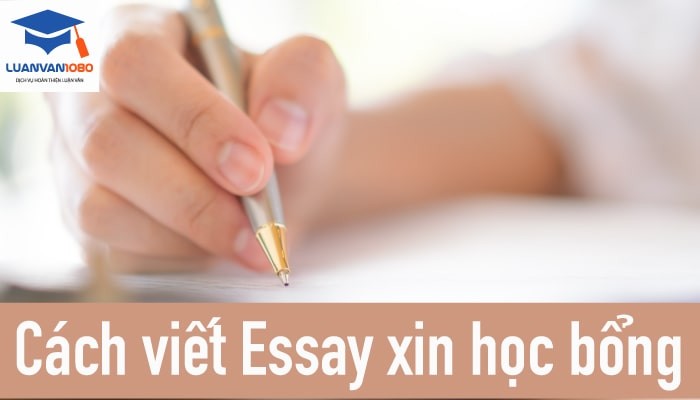
Hướng dẫn cách viết essay xin học bổng hiệu quả
1.1. Lên kế hoạch
Nếu bạn đợi đến phút cuối cùng để viết bài essay xin học bổng của mình, chất lượng bài luận có thể sẽ bị ảnh hưởng.
Để đảm bảo rằng bạn có đủ thời gian cho giai đoạn lập kế hoạch, hãy tạo một bảng biểu với tên, các thời hạn và yêu cầu cho tất cả các học bổng bạn muốn đăng ký. Hãy đảm bảo dành cho mình nhiều thời gian để lên ý tưởng và viết bài luận.
1.2. Chọn học bổng phù hợp
Một sai lầm mà nhiều ứng viên mắc phải là họ rất chăm chỉ viết bài essay xin học bổng, nhưng lại không dành đủ thời gian để quyết định đăng ký học bổng nào. Đây là cách tiếp cận sai lầm và nó không chắc tạo ra kết quả tốt.
Thay vì nộp đơn xin một loạt học bổng không phù hợp với tài năng cụ thể của bạn, hãy tập trung nỗ lực vào một số ít được chọn. Bạn sẽ tiết kiệm cho mình rất nhiều thời gian và trí tuệ để dành nhiều sự quan tâm hơn cho những học bổng mang lại cho bạn cơ hội thành công tốt nhất.
1.3. Hiểu giám khảo của bạn
Cách tốt nhất để cung cấp cho hội đồng học bổng những gì họ đang tìm kiếm là thực sự biết những gì họ đang tìm kiếm. Tìm ra hình mẫu ứng viên lý tưởng của họ và bạn phù hợp với nó như thế nào.
Hãy nhìn vào điểm mạnh của bạn, sau đó xác định cách bạn có thể xử lí chúng để trở thành ứng viên lý tưởng.
>> Đọc thêm: 60+ Đề Tài Báo Cáo Thực Tập Tiếng Anh Thương Mại Mới Nhất
1.4. Đọc kỹ hướng dẫn và trả lời lời nhắc (Prompt)
Đây có vẻ là một trong những mẹo làm bài essay xin học bổng rõ ràng hơn, nhưng nhiều ứng viên mắc sai lầm đầu tiên trước khi bắt đầu – họ không đọc hướng dẫn.
Vượt quá (hoặc không đạt) số từ có thể làm mất đi cơ hội của bạn vì nó cho thấy rằng bạn đã không chuẩn bị bài luận của mình tốt như những ứng viên khác.
Ngoài ra, hãy kiểm tra kỹ để đảm bảo rằng bạn đang trả lời kỹ lưỡng tất cả các phần của lời nhắc và bạn đang làm theo đúng định dạng bài essay yêu cầu.
1.5. Chọn một chủ đề mà bạn thực sự yêu thích
Nếu bạn chọn một chủ đề khiến bạn cảm thấy khó chịu, bạn cũng có thể sẽ khiến người đọc của bạn cảm thấy khó chịu!
Cố gắng chọn một chủ đề mà bạn đam mê hoặc bạn quan tâm, thay vì một chủ đề mà bạn cảm thấy mình nên viết. Bằng cách đó, cá tính và sự hứng thú của bạn sẽ được thể hiện qua bài viết ấy!
1.6. Lên dàn ý bài essay xin học bổng
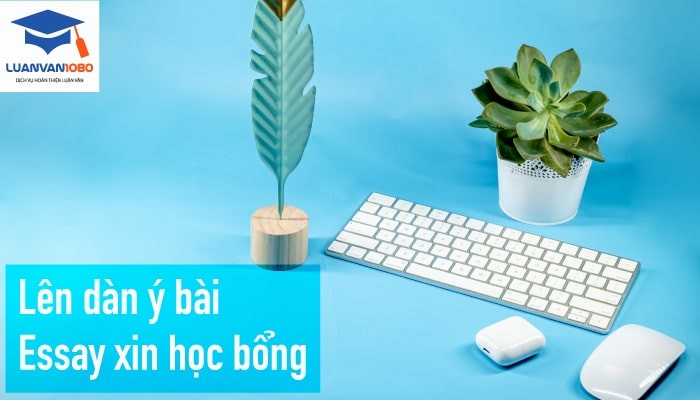
Lên dàn ý bài essay xin học bổng
Sau khi bạn đã hiểu rõ về trọng tâm của bài luận, bạn nên lập một dàn ý chi tiết. Một số sinh viên hay bỏ qua bước này, nhưng nó thực sự làm cho quá trình viết essay nhanh hơn nhiều! Tuân theo cấu trúc mở – thân – kết để trình bày những ý tưởng của bạn một cách mạch lạc, rõ ràng.
Vì phần mở đầu là thứ thu hút người đọc vào bài luận của bạn và thuyết phục họ tiếp tục, nên nó phải là một trong những phần lôi cuốn nhất của bài essay. Thay vì bắt đầu với một cái nhìn tổng quan chung, tại sao không thu hút người đọc của bạn bằng một dòng đầu tiên đáng ngạc nhiên?
Tránh đi lạc hướng bằng cách dành thời gian để xác định thông tin nào phù hợp và thông tin nào không. Tương tự, hãy xem xét bạn nên đưa vào phần thân bài bao nhiêu chi tiết. Cung cấp một số chi tiết có thể làm cho quan điểm của bạn rõ ràng hơn hoặc hấp dẫn hơn, nhưng quá nhiều chi tiết có thể khiến bài luận của bạn lủng củng, lan man.
Hầu hết mọi người sử dụng phần kết luận để tóm gọn toàn bộ bài luận của họ bằng cách nhắc lại luận điểm một cách buồn tẻ và nhàm chán. Hãy kết thúc nó một cách sáng tạo, làm cho bài luận của bạn trở nên thú vị và thu hút sự chú ý từ chữ cái đầu tiên cho đến chi tiết cuối cùng.
Một cách tuyệt vời để đưa kết luận của bạn lên một cấp độ mới là để lại cho người đọc một câu hỏi thú vị để họ suy nghĩ. Để có thêm ý tưởng, hãy đọc bài essay mẫu xin học bổng này.
>> Tham khảo thêm: Dịch vụ viết assignment thuê tận tâm, tư vấn chi tiết 24/7
1.7. Viết bài luận
Có dàn ý chi tiết trong tay, bạn hãy bám sát vào nó để viết bài essay xin học bổng. Hãy tham khảo những bài essay mẫu xin học bổng cùng chủ đề để rút kinh nghiệm cho mình.
Chú ý thời gian hạn nộp bài để bạn có kế hoạch viết và đọc lại nó phù hợp, giúp cho bài essay của bạn trở nên hoàn hảo.
1.8. Thể hiện cảm xúc
Kết nối với khán giả thông qua văn bản có thể là một thách thức, nhưng nó sẽ tạo được sự kết nối vô hình giữa người đọc và bạn nếu nó được thực hiện đúng cách.
Hãy khéo léo thể hiện cảm xúc của bạn để giúp người đọc thấy rằng bạn là một người bình thường chứ không phải một tác giả vô danh.
Tất cả chúng ta đều có những lỗ hổng, vì vậy đừng ngại để lộ chúng. Các hội đồng học bổng không mong đợi bạn quá hoàn hảo mà họ muốn xem bạn đã trưởng thành như thế nào và xử lý những trở ngại mà cuộc sống đã ném theo cách của bạn.
1.9. Sử dụng các ví dụ trong cuộc sống thực
Những ví dụ từ thực tế cuộc sống của bạn sẽ giúp bạn tạo được điểm nhấn riêng với người đọc, là cơ hội để chuyển đổi bài luận của bạn từ chung chung thành độc đáo.
1.10. Giữ cho giai điệu truyền cảm hứng và tích cực
Một trong những cách viết essay xin học bổng ghi điểm nhất là hoàn toàn dựa trên quan điểm và giọng điệu của bạn.
Không ai muốn đọc một câu chuyện buồn và với những cảm xúc tiêu cực. Ngay cả khi bạn đang viết về những sự kiện khó khăn hoặc buồn bã trong cuộc sống, hãy cố gắng giữ cho giọng văn lạc quan và đầy cảm hứng. Thay vì chỉ viết về cách bạn bị ảnh hưởng tiêu cực bởi một sự kiện, hãy tập trung vào cách bạn trưởng thành từ trải nghiệm và vượt qua trở ngại.
Trên đây là những bài essay mẫu xin học bổng giúp định hướng cho bạn khi bạn viết bài luận. Hãy nhớ rằng tất cả các đơn xin học bổng đều khác nhau, vì vậy bạn phải tự viết bài luận của mình để đáp ứng được những yêu cầu cụ thể đó.
Nếu có bất kỳ thắc mắc nào hay gặp phải khó khăn gì trong quá trình viết essay xin học bổng, hãy liên hệ với chúng tôi theo hotline 0969991080 hoặc gửi email về địa chỉ luanvan1080@gmail.com để được đội ngũ chuyên gia của Tổng đài Luận Văn 1080 tư vấn nhé.


 14 Tháng 1, 2026
14 Tháng 1, 2026 Share
Share
